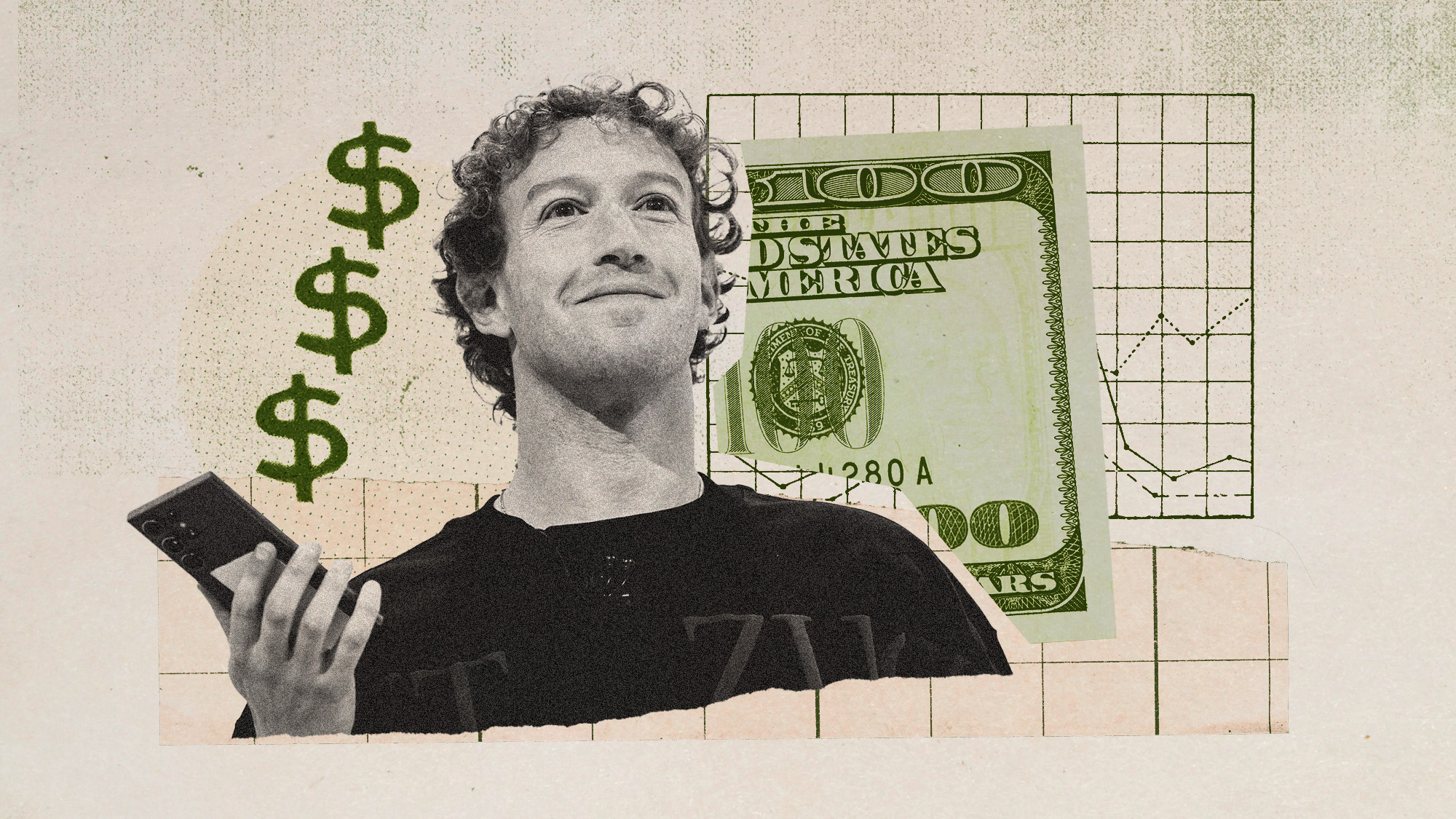Facebook's VR conference room is the most boring possible future


A free daily email with the biggest news stories of the day – and the best features from TheWeek.com
You are now subscribed
Your newsletter sign-up was successful
If the great science-fiction writers of yesteryear were to see us now, they'd be horrified. Not just because the future turned out to be exactly as apocalyptic as they imagined — mankind faces war, fire, and disease, while the elites eye fleeing the planet — but because it's honestly so boring.
Case in point: Mark Zuckerberg's big, much-hyped reveal about "the future of Facebook" on Thursday turned out to be the invention of … a conference room. While the room admittedly exists in virtual reality — accessed by wearing one of those dorky Oculus Quest 2 headsets, and intended to disrupt the workspace by bringing together physically disparate employees in the form of legless digital avatars — it's also illustrative of the imaginative bankruptcy of today's tech giants. Facebook literally had the time and money and manpower to create anything it wanted, but it chose to replicate a drab, soul-sucking office space?
My complaint isn't just that the conference room VR concept lacks imagination — although come on, at the very least it should have allowed coworkers to meet in an environment designed to look like the African savanna, or the surface of Mars, or the Hyrule Castle Super Smash Bros. stage. But Horizon Workroom, as Facebook's immersive experience is called, also shows how the grind to maximize productivity — why waste precious time commuting to a physical office when you can be beamed into one from bed! — supplants any genuine awe for the technological tools we have at our disposal.
The Week
Escape your echo chamber. Get the facts behind the news, plus analysis from multiple perspectives.

Sign up for The Week's Free Newsletters
From our morning news briefing to a weekly Good News Newsletter, get the best of The Week delivered directly to your inbox.
From our morning news briefing to a weekly Good News Newsletter, get the best of The Week delivered directly to your inbox.
The great potential of virtual reality, after all, was never that it could bring the splendor of midtown Manhattan conference rooms to the rest of America. The hope of VR was that it could train new surgeons in underserved parts of the world, or raise empathy in people who've never had to live in a refugee camp, or inspire new forms of art and storytelling. The problems facing our planet right now are far more urgent than how to go about recreating office small talk.
As a current citizen of my ancestors' future, I too am disappointed we don't yet have flying cars. But I'm even more let down that Facebook has used the word "future" to sell a virtual conference room. Zuckerberg and his team fundamentally misunderstand the grounds for human connection, innovation, and inspiration — none of which are born from staring into the #0000FF-colored eyes of your boss' avatar. They come from working together to imagine a world greater — for everyone — than the one we already have.
A free daily email with the biggest news stories of the day – and the best features from TheWeek.com
Jeva Lange was the executive editor at TheWeek.com. She formerly served as The Week's deputy editor and culture critic. She is also a contributor to Screen Slate, and her writing has appeared in The New York Daily News, The Awl, Vice, and Gothamist, among other publications. Jeva lives in New York City. Follow her on Twitter.
-
 How to Get to Heaven from Belfast: a ‘highly entertaining ride’
How to Get to Heaven from Belfast: a ‘highly entertaining ride’The Week Recommends Mystery-comedy from the creator of Derry Girls should be ‘your new binge-watch’
-
 The 8 best TV shows of the 1960s
The 8 best TV shows of the 1960sThe standout shows of this decade take viewers from outer space to the Wild West
-
 Microdramas are booming
Microdramas are boomingUnder the radar Scroll to watch a whole movie
-
 Is social media over?
Is social media over?Today’s Big Question We may look back on 2025 as the moment social media jumped the shark
-
 South Korea's divide over allowing Google Maps
South Korea's divide over allowing Google MapsTalking Points The country is one of few modern democracies where the app doesn't work
-
 Are AI lovers replacing humans?
Are AI lovers replacing humans?Talking Points A third of Gen Z singles use tech as a 'romantic companion'
-
 Social media: How 'content' replaced friendship
Social media: How 'content' replaced friendshipFeature Facebook has shifted from connecting with friends to competing with entertainment companies
-
 Why Bezos' new pickup could be a 'wrecking ball' in EV industry
Why Bezos' new pickup could be a 'wrecking ball' in EV industryToday's Big Question Slate Auto's no-frills approach is a 'potential Tesla killer'
-
 Meta on trial: What will become of Mark Zuckerberg's social media empire?
Meta on trial: What will become of Mark Zuckerberg's social media empire?Today's Big Question Despite the CEO's attempt to ingratiate himself with Trump, Meta is on trial, accused by the U.S. government of breaking antitrust law
-
 What does an ex-executive's new memoir reveal about Meta's free speech pivot?
What does an ex-executive's new memoir reveal about Meta's free speech pivot?Today's Big Question 'Careless People' says Facebook was ready to do China censorship
-
 What's Mark Zuckerberg's net worth?
What's Mark Zuckerberg's net worth?In Depth The Meta magnate's products are a part of billions of lives
